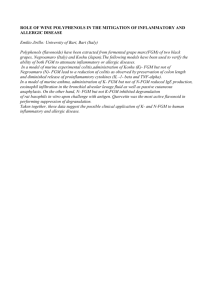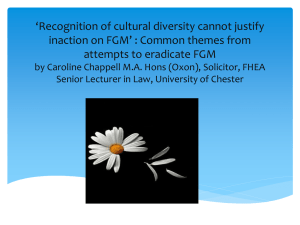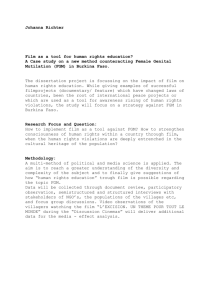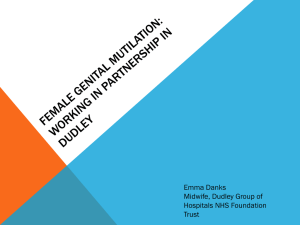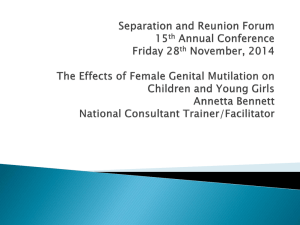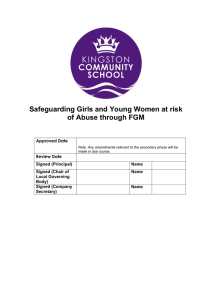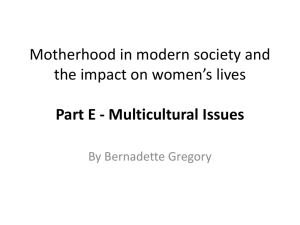PPT/115kb - FGM National Clinical Group
advertisement
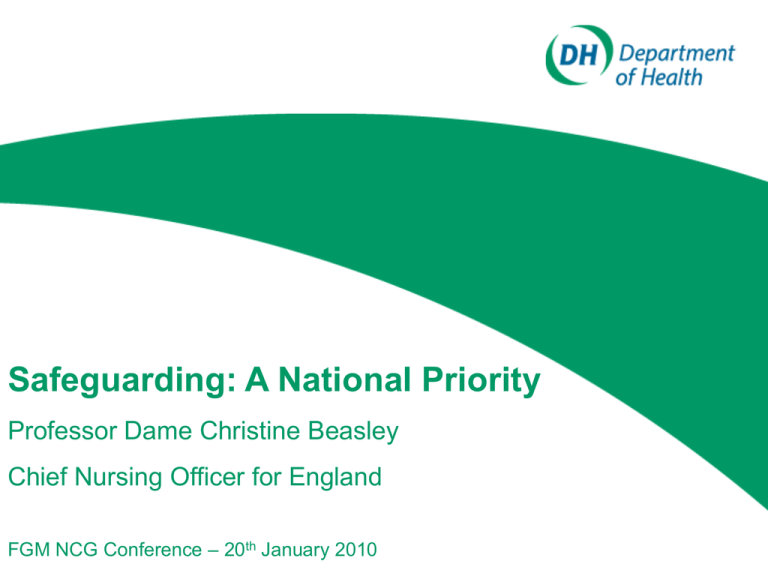
Safeguarding: A National Priority Professor Dame Christine Beasley Chief Nursing Officer for England FGM NCG Conference – 20th January 2010 Why is Safeguarding important? • It is about: – Protection – Prevention – Environment – Achievement – Transition Awareness raising: In the community Advocacy/ translation Staff training Multi agency With families Women’s services Multi Agency Approach: Legislative framework individual NGOs/agencies DoH/NHS Legislation: National: • Female Genital Mutilation Act 2003 – All forms of FGM illegal including being taken abroad for the procedure or when self-inflicted • Prohibition of FGM (Scotland) Act 2005 – All forms of FGM illegal including being taken abroad for the procedure or when self-inflicted • Childrens Act 1989 – Local Authorities can apply for various orders to prevent children being taken abroad International: • UN Convention on the Rights of the Child • UN Convention on the Elimination of all forms of Discrimination Against Women NHS Resources: 14 specialist clinics in the NHS that treat women and girls who have undergone FGM. Specialised FGM services are crucial to providing sensitive and appropriate care to women already affected by FGM Training DVD for health professionals : (for copies please contact Ben.Robins@dh.gsi.gov.uk). FGM awareness advert for Somalian Television: www.youtube.com/watch?gl=GB&hl=en-GB&v=b6chv-YRDBU Children and young people DV toolkit - contains some FGM guidance: www.dh.gov.uk/en/Healthcare/ViolenceagainstWomenandGirls/Resources/index.htm Government Action: Established a Taskforce on the Health Aspects of Violence Against Women and Girls which looks at FGM Appointed a cross government FGM coordinator: objectives include development of a publicity campaign, drafting of a multi agency guidelines and training resources. Cross-government work addressing this and other harmful traditional practices - regional seminars took place in June/July 2009 to raise awareness in communities and with front line professionals. Taskforce Subgroup: Emerging Findings Victim care at the heart of services Supporting staff to deal with FGM Awareness raised across the board The NHS must support staff to work in partnership with a range of agencies in order to provide a holistic, culturally sensitive response to the needs of victims. Recommendations of the Taskforce Subgroup: Prevention – Challenge attitudes Identification –Training and key indicators Key services – Clearer pathways Information Sharing – Greater clarity on protocols Workforce – National lead on FGM Systems and incentives - Commissioning To Conclude: FGM is abuse, and against the law. There is limited information available on FGM – some mapping is required There is much to be done in order for health services to respond adequately to the needs of those who have undergone FGM. There is much good practice for us to draw on. A joined up, multi agency approach is crucial.
